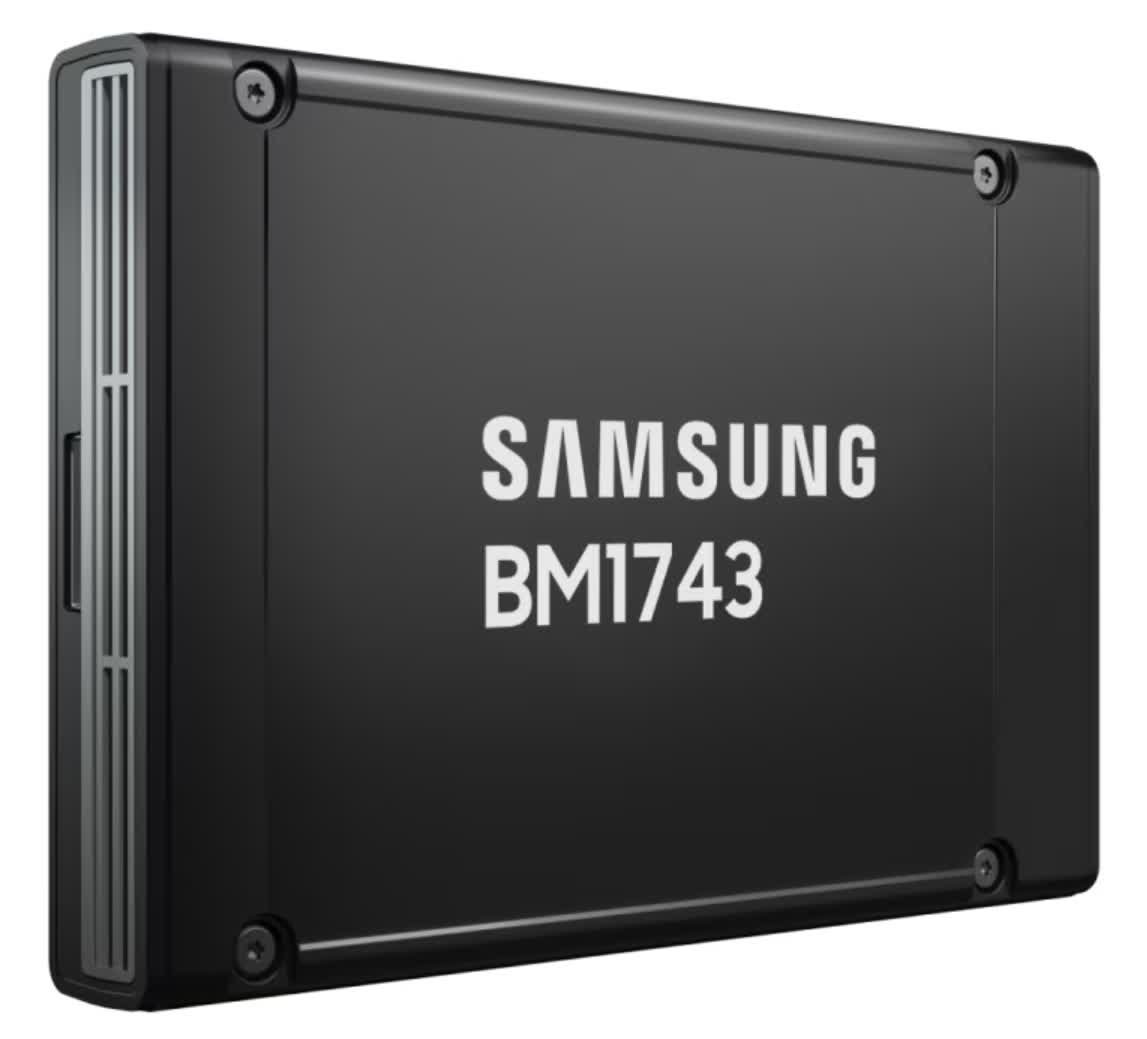In brief: Add Samsung to the small but growing list of storage makers that offer a 60 TB-class solid-state drive. The company's new BM1743 is a data center-grade SSD that utilizes Samsung's 7th-generation quad-level vertical NAND storage tech which nearly doubles the number of stacked layers compared to the previous generation.
The drive supports PCIe Gen4 using the familiar U.2 form factor but is also available in an E3.S form factor to leverage a PCIe Gen5 interface. The first models afford 61.44 TB of capacity, although Samsung teased that future iterations could push that to 122.88 TB – double the capacity of its new drive.
Performance specifications are roughly in line with what you would expect from a data center drive that is mostly going to be tasked with storing and retrieving information, not writing it (think read-intensive AI workloads). Sequential read speed is rated at 7,200 MB/s compared to just 2,000 MB/s for sequential writes. Similarly, 4 KB random reads are rated at 1,600,000 versus 110,000 random write IOPS.
Given the numbers, it is clear that Samsung's latest wouldn't come close to saturating a PCIe Gen5 interface, but having the option is still nice for compatibility sake.

Samsung has also improved reliability, pushing up to 0.26 drive writes per day compared to 0.18 for the previous generation. What's more, power-off data retention is now rated at three months, from just one month. The company did not touch on power consumption. Considering capacity is the crowning achievement here, power consumption was likely a secondary goal.
Samsung joins Western Digital and Solidigm as the only manufacturers currently offering a 60 TB-class SSD, but it is almost a guarantee that competitors including Kioxia, Micron, and SK Hynix have similar or even larger drives in the works. Solidigm announced its big boy SSD last year, with Western Digital joining the race at Computex 2024 last month.
Pricing was not mentioned but for comparison, Solidigm's 61.44 TB SSD commands north of $8,100.
Image credit: Brett Sayles
